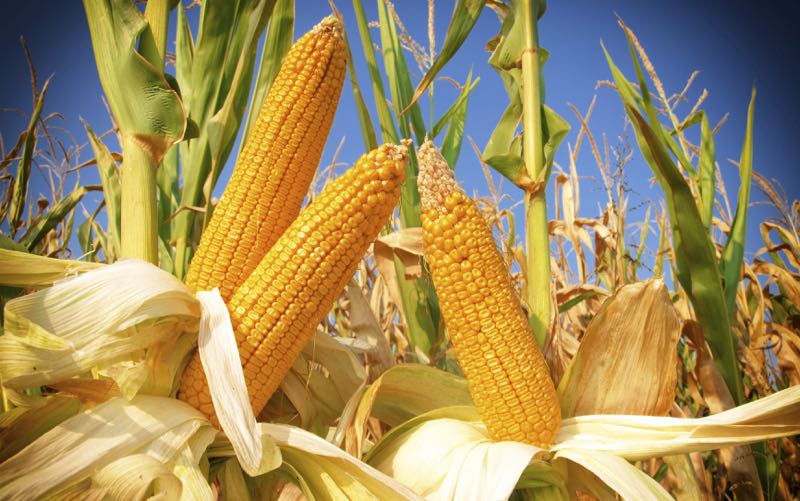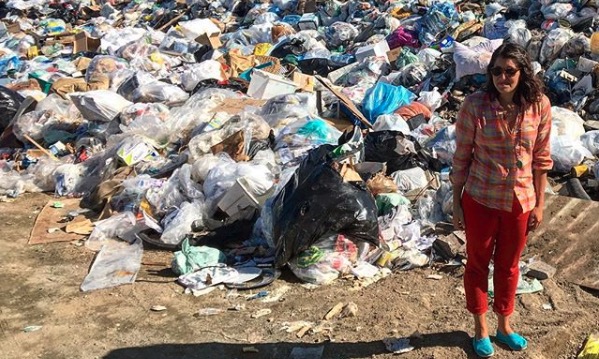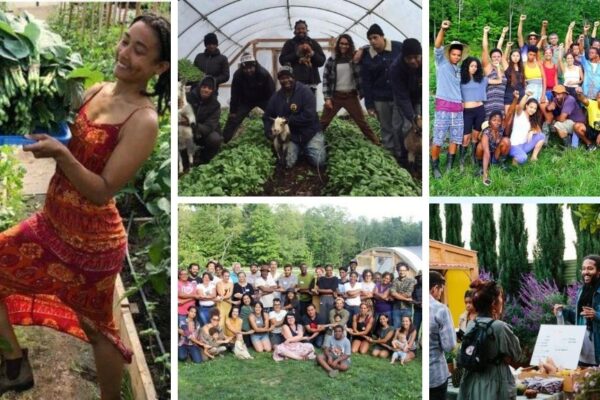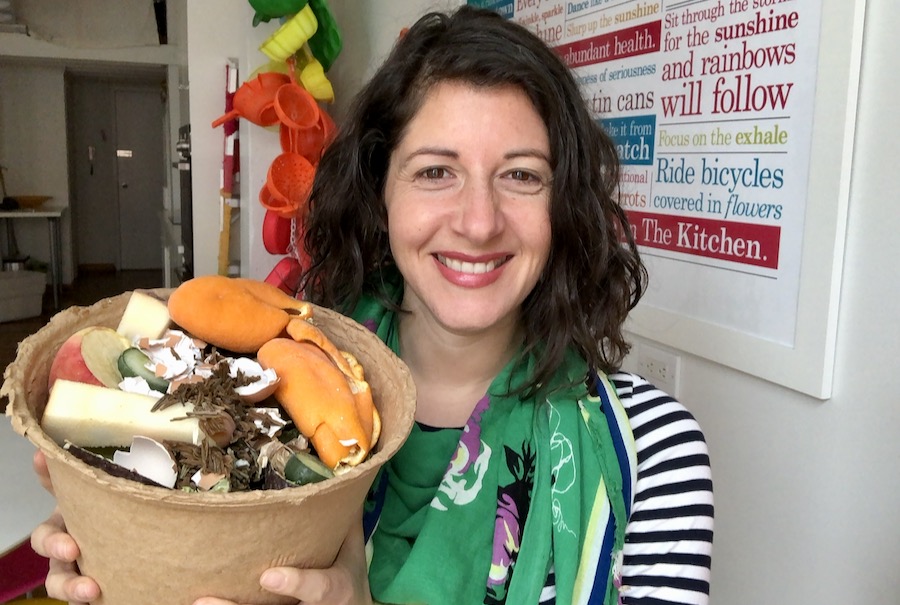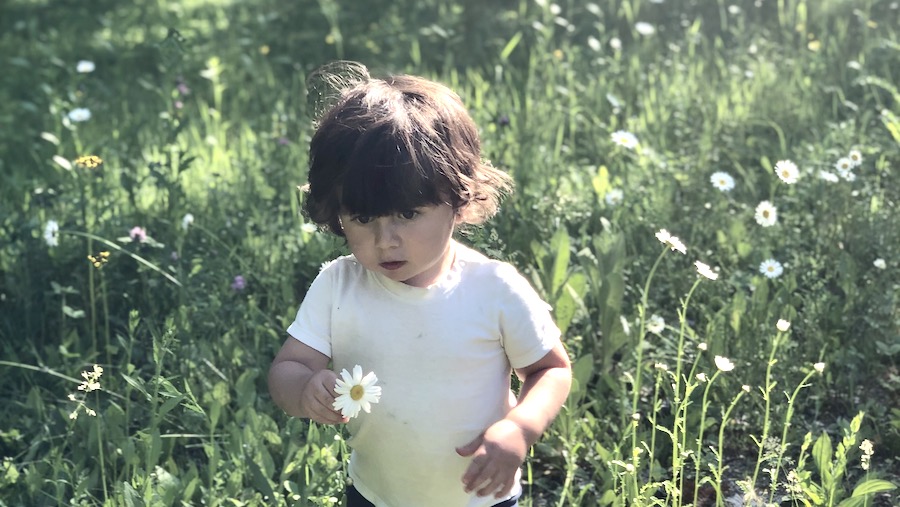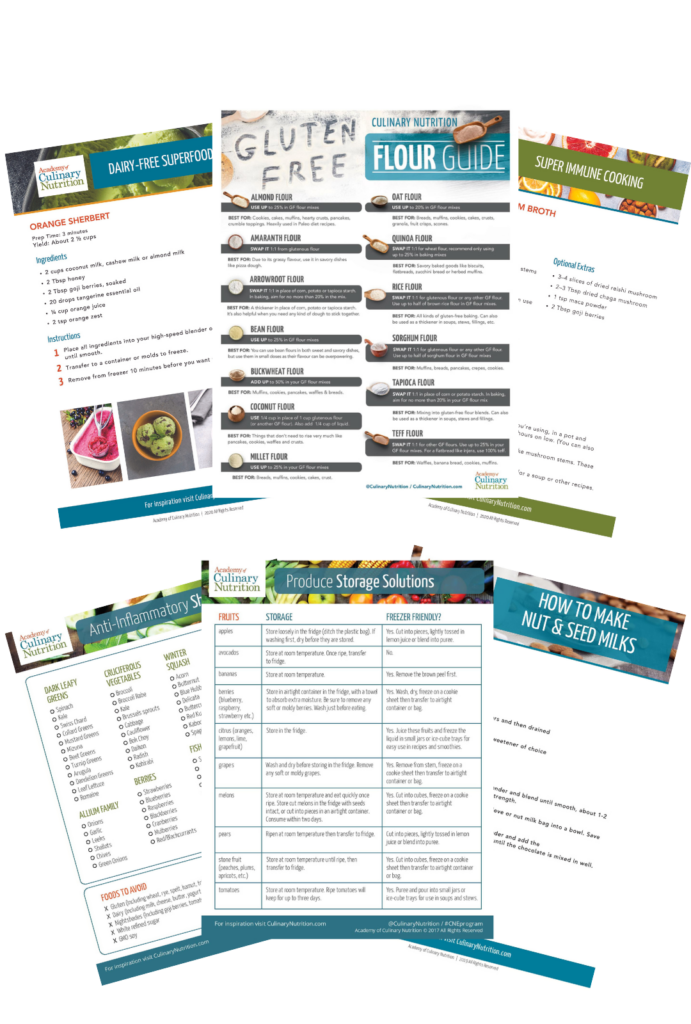Climate Change Measures Versus True Ecological Care
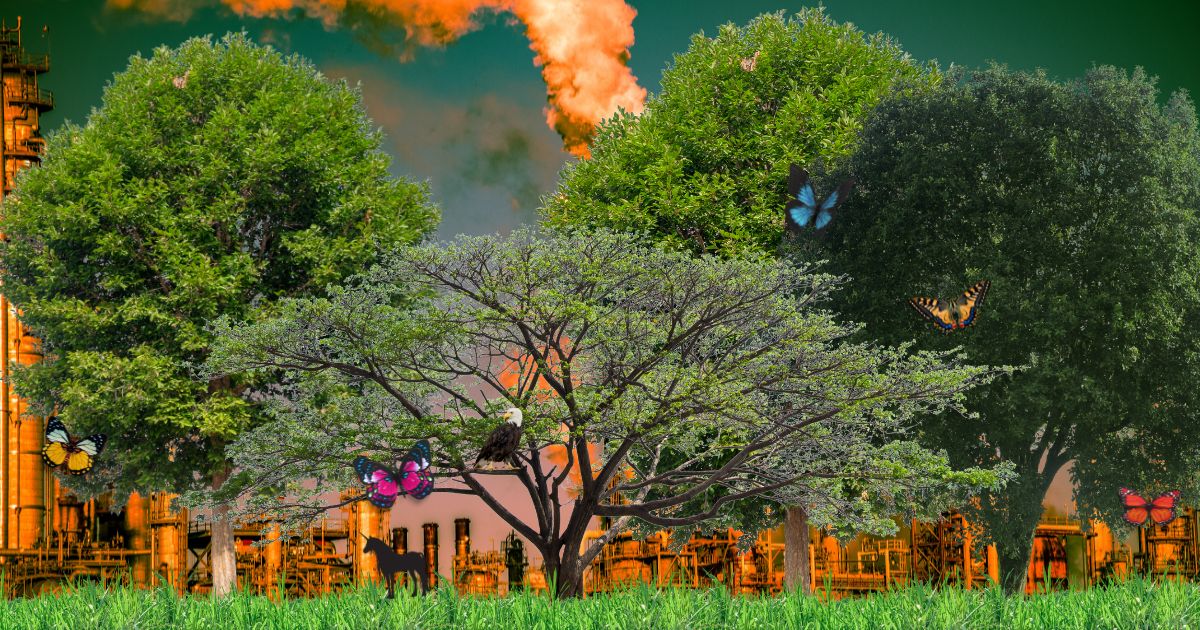
We’re being told ‘climate change’ is the crisis we need to pay attention to. If this is true, is it possible we’re being pointed in the wrong direction regarding both primary causes and solutions? And what if it’s not true, or not in the way we’re being led to believe? This distinction could make a world of difference.
What follows is a nuanced view. This is not a black-or-white issue but one that is deeply complex and that requires more thought and action than news headlines and public figures are leading us to believe. Settle in, read or listen, and take your time getting to the end. We’re going on a journey.
Enjoy on the go with an audio recording of the post in its entirety.
Full written post below.
Also available on Apple Podcasts, Spotify, and Castbox.
I remember when it was a thing to calculate your ecological footprint before it was rebranded as ‘carbon footprint’. I was an early adopter of what I thought of as planetary care. I had my cloth tote bags, and glass straws, bought things in bulk, saved all my jars to reuse, and have always done my best at keeping single use plastic out of my home. Having long been a fan and advocate for buying second-hand (especially vintage for me!), I’ve also developed a love for fixing and mending or selling and donating what no longer serves to extend usage. Avoiding single-use plastics is my aim (because recycling really isn’t what we think it is) and every bit of plastic ever made still exists on our planet.
As a child of the 80’s, I remember talk of the energy crisis and acid rain, the hole in the ozone was big in the 90’s, and then came global warming in the early aughts. Now the global politics (and big money, and measures ‘for your safety’) of it all have swooped in along with the rebranding of ‘Global Warming’ to ‘Climate Change’, and ‘Environment Canada’ being renamed ‘Climate Change Canada’ in 2023.
With growingly intense political division and ideologies being adopted as personal identities, we also know that to ‘believe in climate change’ without question will align you with certain groups and policies. To question what we’re being told, or even any small aspect of it, will have you labelled a ‘climate change denier’ or worse, one of those crazy right-wing, tin foil hat wearing conspiracy theorists.
Where is she going with this!!?!?! Is she one of them or one of us?
Spoiler: I’m neither. I don’t think. Who knows, who cares. I’m just here asking questions because this isn’t about plastic bags, or plastic straws or carbon taxes. That is all a distraction from what’s actually critical here— the fact that we’re being told to look in one singular direction when there is nothing being done to address what might be most critical: a growing disconnection from nature, the actual environment, sacrificing our own mental and physical health. Instead we’re fostering an absolute reliance on tech-based solutions and government policies, taxing their way out of this, at the expense of citizens.
We do have an environmental issue. But it’s not in the way we’re being led believe. All we have to do is look to the declining health of all living things on this planet and ask whether the solutions are fixing that. They’re not. Because they’re not getting to the root cause.
Curiosity killed the cat and may just have me cancelled for trying to answer the questions that come to my mind on this topic. So far I’m still standing because I do believe that when presented with common sense and facts, it triggers something deep within people that may make them intensely uncomfortable but also resonates because of the simple truth of it all.
Take A Pause For A Moment
If your knickers are already getting knotted and you’re thinking– What is Meghan saying? What team is she on? Is she about to say what I think she’s about to say? Do I now need to unfollow, unsubscribe, and walk away from all the other work she’s done because of this one long format exploration of an idea?
First, take a deep breath or ten (or get yourself into coherence) and come on back in a calm state with your pre-frontal cortex turned on so we can be grown-ups together and do a little critical thinking and maybe have a difficult conversation.
Most importantly, remember for that we all live here, on this one sweet planet, and we need this planet to thrive if we are to thrive. Most of all, I ask and attempt to answer these questions because I don’t want my child growing up in a world where every move he makes is tracked, where he cannot choose what he eats, and mostly I want him to live in a healthy environment, a healthy and thriving planet so that he can be a healthy and thriving human alongside other healthy and thriving humans.
This is why this topic and the key difference between creating division among this global community of humans for the sake of ‘climate change’ versus what it means to live by (and be governed by) the principles of true ecological care needs addressing.
It’s Time To Wake Up and Look Around
The idea for this was sparked by a conversation with a good friend who has two teenage children being taught about climate change in school. She said that not too long ago she would have been all on board but now is not so sure where she stands as the policies, taxes, and general messaging seem to be more about protecting big business profits, governments, and global control over the population by unelected officials that seem keen on having us drink potato milk and eat lab-grown or ‘plant-based’ meat versus the actual wellbeing of humans and the planet. All of this is happening while our old-growth forests continue to be cleared with abandon.
My response to my friend was simple: We need to take care of the planet, be environmentally aware, and conscious about our role in this ecosystem if we as humans are going to thrive. Currently, the human population is degenerating, not thriving and no amount of technology will save us from our epidemic disconnection with the source of where we come from: nature.
We need to clean up our act in real ways, not simply by paying a carbon tax to offset our flight to an all-inclusive in Cancun where we’ll eat factory-farmed food, and drink from single-use plastic bottled water. A tree being planted to offset all that goes into manufacturing and shipping some plastic sneakers made in China isn’t quite an equal balance. We have developed an obsessive need for the newest yoga pants made from recycled water bottles, or even try and do the right thing by jumping on a climate-friendly plant-based diet without considering that the energy equivalent to get the food to us then we take in consuming it.
Is there anything wrong with going on vacation in Cancun or buying some yoga pants? No, I don’t think so. It’s the greenwashed ‘net zero’ initiatives in response that I have questions about.
Does all of this ‘offsetting’ help? Maybe. But it’s not enough to turn the tides.
I am not affirming or denying changes that could be happening to our climate (although this independent thorough review by The Fraser Institute counters what the media-approved scientists, politicians, and non-elected elite global organizations are saying, and I think it’s always important to read that which contradicts our existing beliefs). I have a healthy dose of common sense, a natural curiosity, and a pesky authority-defying streak. When I am told to look in one direction, I will strain my own neck looking the other way.
It’s really remarkable how we will often only see what we’re told to look out for.
More often than not, when we’re told to look for just one thing, we fail to pay attention to or even know what to ask that is not in full highlight.
Free Resource Library
Enjoy more than 40 downloadable guides, recipes, and resources.

Is the climate actually changing Because of Day-To-Day Human Activity?

Most stores where I live have banned plastic bags. Everyone applauds. But this only refers to the free ones at checkout. You can, of course, purchase a different kind of plastic bag – this one in the form of a tote bag that might give you a few more uses, but ultimate ends up in the same place. It’s still plastic. I suppose we’re not supposed to notice that just about everything else in most stores is made of and/or packaged in plastic.
I have no idea if our little everyday actions are the direct cause of what we’re told is the main problem. I am not sure anyone does but everyone is picking a side anyway. You most certainly can find scientists who will say it is, and others saying it’s not and that this is the natural ebb and flow of nature on this planet over time
What I do know for sure is that you can find quality data that will support both views. One can argue the climate has always been changing – sometimes in subtle ways, sometimes in dramatic ways (hello, Ice Age). Humans have existed on this planet for a tiny fraction of time that the planet has existed and data has been tracked and collected for an even tinier fraction of time.
Is a change of one to five degrees dramatic over the entire history of planetary existence? Perhaps. Perhaps not.
Is it dramatic for human life and how and where we live? Looks like it is, but how much is naturally occurring cycles versus the impact of industry? And is that actually what’s happening?
More importantly, are you and I, as single individuals the ones causing it? Maybe. Maybe not.
But It Was ‘The Hottest Year On Record’

If you search ‘hottest year on record’ and put any year in front of that, you’ll get a slew of stories about that year (I went as far back as 1995). You can find the same pertaining to individual countries; the exact same headline with different countries slotted in.
Now, I am not giving a yay or nay on whether this is true because data can and is cherry-picked to tell whatever story is supposed to be told, and when this happens, we become so convinced that we don’t even know what questions to ask to challenge it. We never know what we don’t know and if I’ve learned anything in recent years, I will never underestimate the power combo of fear mixed with propaganda. When we’re told something enough times we tend to believe it. We begin to believe it was our own original thought and believe it just like every thought that pops into our mind.
This list of heatwaves is interesting to note because we know a couple of massive heat waves in a few places on the planet in any given year, when averaged out across the whole planet, can impact total average temperature, however, is that an accurate way to measure of change? Another question I have yet to find a reliable answer for.
The Forest Fire Problem
Here’s another one. We’re told to be terrified about the increasing amount of forest fires. In 2023 there seemed to be record fires that were cited as (simultaneously, in many different areas) caused by dry lightning. In Toronto, where I live, the city was engulfed in smoke for days, and up north nearly the entire summer. People were evacuated from homes across Canada due to the fires. To be clear, questioning the cause is in no way diminishing the very real damage and suffering caused by them.
It is, however, necessary to note that many were later (quietly) proven to be arson (in Alberta, Quebec, and Nova Scotia), not climate change. (Curiously, the ‘fact checkers’ were quick to debunk the actual trial outcomes saying people may have been at fault for starting them, but climate change was why they spread). Again, I’ll mention this report by The Fraser Institute that presents evidence that forest fires have actually been on the decline since 1995.
As humans, we want to be right always, and so we have a tendency to follow an ideology that aligns with most of our values and then seek out the news media, experts, and friends who continue to affirm what is now our own bias. Confirmation bias sets in and you will be served information, by the very nature of the internet, that continues to support what you already believe. We will look in the direction we’re being told that keeps us as comfortable as possible. It might be useful to note here that as the world seems to be racing towards the beast of AI, no one is talking about the massive carbon footprints generated by Data centres and AI.
ChatGPT And The Energy Grid
A quick sidebar for you:
- A report from the International Energy Agency estimates that data centers’ total electricity consumption could reach more than 1,000 terawatt-hours in 2026, which is roughly the energy consumption of Japan.
- In 2022 alone, data centres consumed 2% of all global electricity usage.
- ChatGPT uses on average 17,000 times more electricity per day than the average household in the US.
Should we not worry about this because maybe a tree was planted, or they’re donating to some new tech start-up that is inventing the technology to remove billions of tons of CO2 from the atmosphere using things like limestone or some other fancy conversion or storage systems? I thought trees and biodiversity do this.
Some More Human-Made Problems
There are many things that are undoubtedly human-made problems that have a negative or unknown impact on the state of health of our planet including:
- Clear-cutting of old-growth forests which impacts rain patterns/drought and the natural carbon sequestering of trees themselves
- The decimation of quality topsoil by chemical-laden mono-crop big agriculture farming, which makes crops weaker and more susceptible to pests thereby requiring more and more chemicals
- The Great Pacific Plastic Patch, a mass of plastic debris floating in the North Pacific estimated to be the size of Texas,
- Out-of-control forest fire set off by arson (Is it possible that the ongoing clearing of forests in BC is actually what is inviting an increase in fires? Yes, yes it is.)
- Fossil fuel usage to convert plastic waste into new fast fashion and shipping packaging that is not recyclable (it is now nearly impossible to find clothing that is not infused with plastic)
- The amount of garbage from our online shopping habits, disposable face masks and plexiglass partitions, trendy brand name drinking cups, and on it goes
- Food packaging used for our obsession with ordering in meals (Just because we’re told a packaging is ‘biodegradable’, doesn’t mean it actually is. It all depends on where it lands after we dispose of it. ‘Biodegradable’ in theory doesn’t actually mean it will naturally decompose in the landfill.)
- The ongoing need to upgrade our tech, plus the built-in obsolescence by the makers (E-waste in Canada has tripled in the last 20 years. They’re trying to work out a better recycling system but again, none of this is actually going away).
- Our obsessive consumerism culture where we’re now buying more than ever because every store in the world is in the palm of our hand (In the US alone, 24.4% of online clothing purchases are returned and half of that ends up in the landfill and 54% of the global fiber market comprised from virgin fossil-based materials like polyester. More fun facts here)
- Cloud seeding / weather modification remains something that is flagged as conspiracy when discussed but is also very really with massive unknown impacts (more below)
See, to me these seem like really big things that need addressing, that would have vast global impact but of course, would deeply impact industry. We can not solve any of this by taxing our way through it but this seems to be the way.
A Note On Cloud Seeding and Weather Modification

First, if this is new to you, I am sorry. You will never look at the sky the same way. In the image above, is this regular air traffic or is this what weather modification looks like? Do you have photos from your childhood in the 60’s, 70’s or 80’s? Does the sky look like this in any of them? (Serious question, please send to me if they do!)
That photo above with a nearly clear blue sky aside from the jet streams was taken at 12:20pm in Palm Springs California on March 10th, 2024. The following photo was taken on the same day, 50 minutes later.

I am not looking to be conspiratorial but it does raise questions, as does the massive abundance of articles on the ‘chem trail’ conspiracy.
What isn’t a conspiracy theory, however, is that there are actual weather modification acts published on government websites, with the stated intention of curbing drought/extreme weather events through cloud seeding (you can search ‘cloud seeding’ with your province/state or country to see details).
From Wikipedia (which I do not deem as a reliable source on it’s own, but sharing to demonstrate how widely acknowledged this actually is).

When you dig deeper into this, you might just stumble across data that says there is a 0% margin of error. The spraying of the skies to modify weather isn’t new. It’s been going on for at least 70 years in some places. That doesn’t make it a safe and harmless practice.
What about Geoengineering?
In recent years, Bill Gates, a former computer programmer and billionaire with no actual environmental or health training, popularized the idea of ‘Solar Engineering’ or ‘Geoengineering’ which is spraying a dust into the sky to ‘shade the sun’ with the theory that this will help cool the planet.
The claim was ‘debunked’ by the fact-checkers…

But then it was done and as of April 2024, testing has begun….

Read more about it without the need to subscribe or pay here in Scientific American and here in Time Magazine (or just search ‘Geoengineering Test’.
The Scientific American article states “The experiment, which organizers didn’t widely announce to avoid public backlash, marks the acceleration of a contentious field of research known as solar radiation modification.”
When it comes to the variety of mineral cocktails being sprayed in the sky we might wonder if the impact is acute based on a single day of spraying? Or maybe there is a cumulative impact? Is there coordination between states or countries since ultimately we all share the same sun and sky? Do we know of the long-term safety for humans and/or the planet (our soil, water, wildlife, food supply etc.) of this? Again, just a few questions to get started on.
Very recently there was a story about massive flooding in Dubai where Bloomberg reported it the result of cloud seeding and just about every news outlet followed with copy/pasted headlines saying it’s not cloud seeding, it’s climate change.
Was it natural? Or was it bad and dangerous permissible weather modification? What are the implications of humans being able to acutely and dramatically change the weather like that?
What I can tell you is that in the midst of working on this, Tennessee passed a motion banning weather modification. Now, how this story was covered was really interesting as it falls in line with how every single story is covered that doesn’t follow a set narrative. It’s made a mockery of by trying to connect it with the ludicrous. Because what would happen if this legislation were reported seriously? Other places might also demand their skies not be sprayed to alter the weather.
Why Have I Taken You Down These Rabbit Holes?
No, it’s not because I want to ruffle more feathers and be seen as even kookier than I already am.
I share all of this here because it is a perfect example of the massive ways in which humans are in fact changing the climate, and not in the ways we’re being told, or more specifically the way you and I are being blamed as the culprits as we go about our everyday lives.
For the sake of what comes next, let’s assume the climate is changing, the next question is this: Are we measuring the right metrics, and what results we should expect?
Free Resource Library
Enjoy more than 40 downloadable guides, recipes, and resources.
Measuring Carbon: Is this An Accurate Metric of Responsible Climate Care?
Carbon is an element on the periodic table. It is an element naturally occurring in nature, and as a part of nature, it is also found in humans. We know that we take in oxygen, exhale carbon dioxide, and trees and green things on land and in oceans take up carbon dioxide in our environment and convert it back to oxygen so we can take another breath.
Yes, transportation, farming, manufacturing, cows farting (as the media likes to highlight), and most human activities of industry and day-to-day living (ie. breathing) will add carbon to the atmosphere. Dying would also make a hefty contribution since the human body is 18-20% carbon in dry weight.
But, and this is a big but, what does ‘offsetting’ this carbon actually do? What does ‘carbon neutral’ actually mean?
The theory goes that we can achieve a balance between the amount of carbon dioxide emissions released into the atmosphere and the amount removed or offset. But is this similar to a ‘calories in calories out’ theory to weight loss. Is all carbon created equally? Is all offset/reduced/or removed equally?
Does putting money into wind turbines in exchange for buying a 100% recycled polyester sweatshirt, originally derived from fossil fuels, making it a ‘carbon neutral’ purchase, really impact the overall health of our planet? Is this actually resolving what is being called a climate emergency?
Does having a company contribute to tech companies that are building reservoirs deep underground to sequester our excessive carbon outputs change the fact that the big thing we just bought will eventually be in a landfill somewhere until the end of time?
Is the banning of plastic bags at most stores even making a blip when 95% of what’s in that store is made of or packaged in plastic?
Are We Looking At This (And Measuring It) All Wrong?
In January 2024 there was a story sweeping the headlines about a study that found that backyard growing (Urban Farming) had a 6x greater carbon footprint than big ag monocrop farming. I read the study and I’d encourage you to do that, too. The simple thing that stood out to me was how blatant the bias was from the outset.
As with just about all climate headlines about ‘zero carbon’, the researchers focussed their research on parameters that served their message.
They did not take into account the carbon footprint of the production or residue of pesticides and fertilizers, the footprint of the machinery needed to tend the fields, the water needs, the impact of chemical runoff into waterways, the loss of biodiversity such as hedgerows that support local wildlife, and companion or rotational planting that serve the natural ecosystem and wildlife, the impact on topsoil, or, of course, on the health of the growers and surrounding communities. The list can go on.
We’re being told a ‘plant-based’ diet will save our planet. I wrote a book once upon a time supporting a ‘plant-based diet’ which I defined as rich in unprocessed plant-foods, you know, like broccoli and salad and topping it off with the protein that made sense for you. It certainly wasn’t asking that you drink potato milk and eat pea burgers. I have long said that health is about so much more than what is on your plate. Well, the carbon footprint of your meal is also more complex.

That bottom left photo is courtesy of Zandbergen, a manufacturing facility that makes Beyond Meat Burgers. Getting into this debate is beyond the scope of what I can cover here but Global Food Justice Alliance is the source to start with and of course know that if it takes more ‘calories’ worth of fossil fuels to get your food to you (think products from olives, coconut, and avocado), than you get consuming it then that is worth giving some thought to.
Electric Cars: The Cart Before The Horse or the Car Before The Battery
The same can be said about electric cars. The actual act of driving an electric car could register as more environmentally friendly than a gas guzzler – meaning there isn’t the exhaust fume from gasoline. But what is the total carbon impact from mining the lithium for the batteries (we’ll leave the working conditions of the miners out of this conversation), the manufacturing of all the electrical parts, and what I suspect will be the next big issues, upgrading the electrical grids, what to do with all the tech once it fails, and of course how all these batteries will be disposed of. What is the actual longevity of these cars. The reality is that this remains unknown.
The cart has most certainly been put before the horse here as much of the claims come down to how the car is being charged which relies on the power sources of the place in which the car is being charged. Further, the batteries weren’t built with their after life in mind so currently, what happens to these batteries remains a larger unknown. Much of the claims on their efficiency is still pending on advancements on technology to extend the life of batteries and other tech within the car as well as how these elements can be re-used, repurposed or break down in a sustainable ways.
Much like biodegradable drinking cups, the energy efficiency of these cars depends largely on it’s full life cylce and that is impacted by how and where exactly the car is operating.
To suggest that driving less overall may be the better solution and to walk, bike, and use public transit more, might make you sound like a ‘left-wing radical’. It is also a fact. But of course, this only makes sense if you live in a well-designed urban environment, the appropriate climate, and have a job where this can work.
Most studies and brands and politicians touting carbon-neutral policies, practices, and taxes are determining when the carbon counter starts and stops, and often looking at them as isolated case studies not actual real life human use (or human experiment. There are theories and then there are long range holistic views of human life which is vastly complex. These policies are not about protecting the people but about investment growth, industry, and control.
Worth noting as well is that none of these measures will stop the air-spraying of glyphosate over expanses of land that once held one of the best sources of carbon sequestration: big old-fashioned trees. But I don’t think we’re supposed to talk about that, or that fact that individuals who attempted to protect the old-growth forests on Vancouver Island were arrested by the RCMP and are now facing personal lawsuits from the logging companies.
On that note, this is my biggest question of all…
When we achieve ‘carbon zero’ or ‘carbon neutral’ status, what then?
This is what I ultimately want to know.
To even think about about any of this on a day-to-day basis is it’s own luxury reserved for those of us who have solid roofs over our heads and food in our fridges. This is, by no means the priority for those just trying to survive, though this bit is hardly discussed as billions are poured into the cause.
So yes, I think it’s fair and very important to ask what we expect all of this to solve when we live in a time when more and more people are barely getting by.
The reality as we look around today is that as a global human population, we are not thriving.
Despite the promises of GMO farming providing bigger yields, there are still people who are starving and food prices keep going up. To be food insecure is only increasing in numbers.
In addition, cancer rates are increasing for a number of reasons, and the people suffering from both cancer and other chronic degenerative diseases are becoming younger and greater in number every year.
Further, the dramatic increase in rates of neurological conditions in children, chronic inflammatory, autoimmune, metabolic disorders, and hormonal issues (ie. fertility issues, testosterone, and sperm count decline) are blowing up.
Could any of this have anything to do with the state of the physical environment in which we live? The fact that even with all these ‘climate change’ policies rolling in, we as a species are becoming sicker and sicker.
More plastic is being manufactured than ever before and where is most plastic derived from? Fossil fuels. We’re consuming on average, one credit card’s worth of plastic on a weekly basis. Microplastics shed from our plastic clothing, it’s in our air, our beds, our kids’ stuffies, and in our pharmaceutical-drug-infused tap water.
If this were really a carbon issue, then why isn’t there an immediate halt on private aircrafts, an end to energy rich data mining, storage and AI, limits on the operation of cruise ships and monstrous resort hotels, a ban on fossil-fuel derived materials (ie. polyester and acrylic) in our clothing and a requirement for all beverage and other food companies to stop packaging in single-use plastic? Can we ban plastic turf in place of grass or ground cover in residential yards?
Where is the education and incentives around regenerative farming, front/backyard growing, basic exercise and self-care. Where are the government funded disease prevention programs? And for the love of fresh oxygen, why is the clearing of old growth forests for export still happening?
We saw the dramatic and immediate changes put in place globally in March 2020. We know what can be done, and done quickly, when interests lie with those in power.
As trees continue to be cut down to be made into wood chips and shipped overseas (at a rate that has doubled since 2014), most of the measures being taken look an awful lot like a guilt-trip-infused cash grab of more taxes, population-control and the threat of ‘climate lockdowns’. What will happen if we don’t start cutting down on the meat we’re eating from our local farmers and switch over to soy or pea ‘plant-based’ burgers derived from subsidized chemically-drenched-mono-crops and sent to factories for processing, packaged in plastic, and shipped to the local supermarket to sit in freezers?

What does a ‘carbon neutral’ world look like?
Will we all be happy, healthy, and thriving? Will disease rates go down? Will wildlife and biodiversity increase? Will we have improved quality topsoil, and as such more affordable and nutrient-rich fresh food available for all? Will farmers growing without big ag/big chemical infusions be supported? Will there no longer be anyone experiencing homelessness? No one going hungry? Will street drug and pharmaceutical use decrease while mental health increases? Will we gain greater strength in communities and a deeper appreciation for the nature that surrounds us? Will we become better able to self-govern harmoniously and have less imposed upon us by the top down?
Will our climate temperatures stop fluctuating year-to-year or is this just what nature does when we let it be?
If any of these are right… If even one or two are what we can expect, count me in!
I am just not convinced the measures being taken, or what’s actually being measured, are bringing us to any sort of root cause solution to improve the metrics that inherently make living on this planet a unifying, loving, well, and joyful experience where we all thrive in harmony with the world around us and each other.
Instead of Counting Carbon Start Taking Care Of What’s Around Us
Imagine for a moment, if instead of pouring billions into carbon-sequestering technology, the government simply stopped permitting the clearing of our forests, and offered incentives to tend our farmland and forests in ways that are self-sustaining, and naturally carbon-sequestering. I mean, isn’t that how nature is meant to work? We take care of it, and then it takes care of us, and then some? And when we are taken care of, and our core needs met, we are better suited to take care of each other.
Government-imposed climate change measures and rebates, and tax-funded incentives for big tech solutions are, for the most part, avenues to greenwash industry, and while may encourage the appearance of accountability, it’s all still about growing in profitability.
The huge majority of climate change measures rely on technological solutions, policy interventions, and economic incentives to ‘reduce emissions’ and promote renewable energy. These are top-down initiatives and policies that may or may not have an impact over the 10-40 year projections.
My concern is that ‘Climate Change’ is becoming a big business much like cancer. When there is enough fear, and enough money involved, and a lot of centralized power, it becomes detrimental to all involved to actually resolve it. Why find the cure when the sickness is so profitable?
The parasite doesn’t want to kill the host, just weaken it enough so it can continue to thrive.
True Ecological Care Emphasizes a More Comprehensive Approach.
If this is going to be sustainable and not require billion-dollar line items on each annual budget, we need an approach that integrates ecological, social, and economic considerations that are practical and applicable day-to-day. This requires a cultural shift, a sense of not just personal responsibility but true care and understanding of how we are interconnected with what surrounds us. This is about prioritizing conservation, restoration, regenerative practices, and community engagement to achieve sustainable outcomes.
We don’t need more technology and external progress. It’s the internal progress that’s lacking where we focus on nurturing the world we actually want to live in, one that we take great joy and respect in caring for, and in turn, we are cared for by it. It’s called an ecosystem. Everything affects everything else.
Can we learn to tune back into our essential selves instead of trying to shop away the discomfort? Nature brings us back. The answer is so simple: Do more of what helps us to remember and less of what causes us to forget.
Easy as can be, right? If only.
True ecological care changes the parameters around the decisions we make and how we interact with the world around us. We need to care if we are to thrive and we have to own this. It’s not a political stance, it’s a human stance.
Healthy Humans Cannot Thrive In An Unhealthy Environment
The human body is not designed to live forever. There is a natural process of aging, the beauty of the life cycle. However, this does not mean that this life cycle should be riddled with stress, and disease and mental/spiritual dislocation– feeling unmoored, and lost to anxieties outside our control. This is, however, the reality for us as we live in polluted environments, while eating and consuming things that are synthetic and ultimately impact the natural expression of the cells that make up life.
Being taxed out the hoo-haw in the name of the climate, or using our financial privilege to ‘offset’ our extravagances, while spending time arguing about what is or isn’t real when it comes to climate change does not alter the fact that as a human species, as a collective, we are not thriving. Our environment is not thriving.
There is no greater harm to the planet than a human being out of balance. We are witnessing how this unfolds in real-time.
Look To The Trees
What if we focus on the trees? If you renovate your home in the city, you have to put this massive partition around the trees on your property. You cannot cut it down. If by some reason a tree needs to be removed, there are fines that have to be paid and a commitment to plant more trees.

Imagine if every tree in our forest required this level of protection?
Caring for trees is a profound expression of our connection to the earth and all living beings. Indigenous wisdom teaches us invaluable lessons about our role as stewards of this land, where trees are not mere objects to be turned into cheap particle board shelving units, but sacred beings, akin to ancestors, with a vital role in sustaining a healthy and joyful life. This understanding leads to a sense of stewardship, where we see ourselves as caretakers of the land.
When we put ecological care at the forefront, there’s a beautiful recognition of the interconnectedness of all life forms. Trees are integral parts of this web of life, and any harm to them reverberates throughout the ecosystem.
This has absolutely nothing to do with political party alignments, following the science, belief in climate theories, taxing people for heating their homes, patriotism, or whether you bring your own totes to the grocery store.
The focus, if one truly does care, is wildly simple: connect back in with the rhythms of nature.
We need to prioritize the health of humans from the root cause, not create more and more red tape to access natural health products. We must protect the trees, the rivers, and the oceans as if our lives depended on them — because ultimately they do. We must care for our earth in ways that are real and tangible, not hand it all over, along with our freedom, to top-down governance.
Most of all, we can not allow ourselves to be swept up in policies and ideologies that make no sense. Don’t ever fear the questions that rise in your heart that might just dismantle a previous belief or alignment.
I do believe our planet: our land, oceans, lakes and rivers, wildlife and humans are at a crisis point– but not in the ways in which we’re being told. The solutions are ridiculously simple but require enough of us to live as we intend to continue for generations to come. Everything we need to move forward in a healthy way already exists. The wisdom has been here long before any of us. It is imperative that we start to listen.
One Last Thing: The Seventh Fire Prophecy and Lighting The Eighth Fire

Photo by: Photo by Vipushan Ravi
The mural pictured here is in my Toronto neighbourhood of Roncesvalles. Indigenous artist Philip Cote was the lead artist with Jim Bravo, and the painting tells the story of the first people who walked the lands in what is now North America. The mural is entitled The Original People Leading to the Eighth Fire.
The mural was completed over the summer of 2018 when my son was one. We would go for walks every day and spend time watching the artists work on the painting.

I had the opportunity to speak to one of the artists and asked about the story that was depicted. The story has stayed with me, and especially since the darkest days of 2020 and 2021 as the veil was lifting for so many as much darkness was becoming known.
The story of this mural is told in full in The Mishomis Book – The Voice of the Ojibway by Edward Benton Banai), and summarized in greater detail here by Philip Cote himself.
This is my attempt to summarize it:
The Seven Fires Prophecy, rooted in Indigenous beliefs, foretells a series of stages that ultimately lead to a golden age of peace. In more recent times, there came to be talk of an Eighth Fire, where Indigenous and Western knowledge unite, sparking a new era. The Seventh Prophet, described as young and visionary, predicted a time when new generations would seek guidance from Elders. The prophecy warns of a pivotal choice for us all between a path of wisdom and one of destruction, determining whether the Eighth Fire brings harmony or suffering.
As Cote writes, “In the prophecy, the people decide to take neither road, but instead to turn back, to remember and reclaim the wisdom of those who came before them. If they choose the right road, then the Seventh Fire will light the Eighth and final Fire, an eternal fire of peace, love brotherhood and sisterhood.”
It is my hope that we will all wake up in time to choose this path, to listen, to learn, to cherish and return to the earth in the ways that are available to us.
In the meantime, I will continue using my cotton tote bags while also asking big questions, supporting local mindful businesses, and farmers, and doing my very best to keep learning, and living what I learn. Despite living in a big city, there are ways to live in harmony with nature, as is continuing to learn about traditional medicine and plants native to these lands. Of course, we are all victims of our own hypocrisy and are blind to our own blind spots, myself included, but hopefully more kind, considerate and open conversations will invite us all to keep asking questions and seeking answers that deeply resonate as true to we can heal the divide and remember that we are all connected.
All photos within the post, unless otherwise indicated were taken by Meghan Telpner.
Free Resource Library
Enjoy more than 40 downloadable guides, recipes, and resources.















